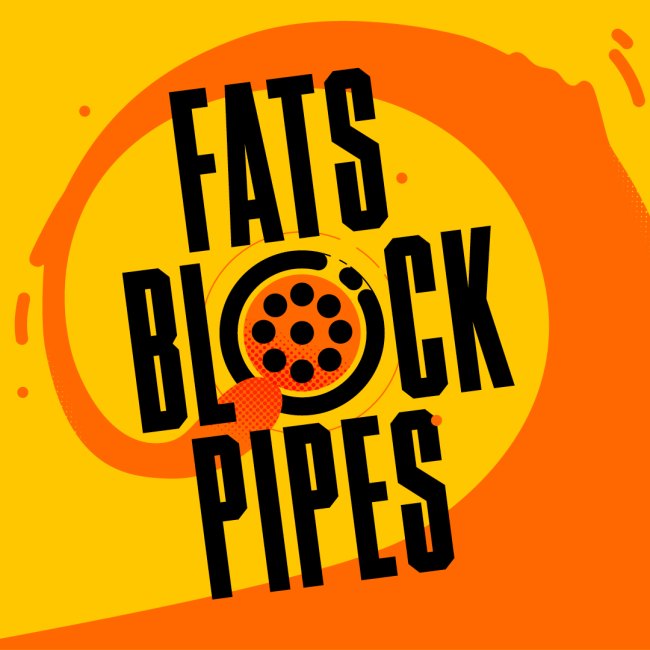Views
Fine to Flush - A Wet Wipe Revolution
Update: the Fine to Flush ‘wet wipe’ certification will come to an end in March 2024.
Water UK’s Fine to Flush standard has come a long way in a short space of time, sparking something of a quiet revolution in the design of wet wipes. With John Dale Ltd’s Little Hero Toilet Training wipes becoming the 100th Fine to Flush accreditation since its inception in 2019, we take a look at how Water UK is helping transform flushable products.
How did we get here?
Every year, the UK uses 11 billion wet wipes which, more often than not, are wrongly flushed down the toilet; and the vast majority of these wipes contain plastic fibres. These wipes don’t break down in the sewer, like toilet paper. Instead, they congeal with other ‘unflushables’ and cause fatbergs – a rock-like mass of waste matter in a sewer system which is formed by the combination of flushed non-biodegradable solids, such as wet wipes, and fat, oil and grease deposits. Fatbergs are costly and time-consuming to remove, and cause blockages in our sewers.
Research has found that wipes account for over 90% of the materials in fatbergs, which reduce the capacity of sewers. These blockages increase the likelihood of sewage backing up and flooding homes and sewage discharges into rivers from storm overflows. Every year, water companies spend over removing fatbergs, repairing sewers and cleaning the environmental damage these flushed wipes cause.
An environmental menace
So how do we stop the environmental menace that is wet wipes? The short answer is that it’s not straightforward, and the water industry is only one part of the solution, but the water sector does have a success story to share.
In 2019, there was no clear policy solution on the horizon to meaningfully ban or change the design of these environmentally damaging products, or tackle the harm they cause. Water UK therefore took action to show that there was a better way to design and dispose of these products. Together with our partners WRc, an independent Swindon-based scientific consultancy, we created the Fine to Flush standard – our very own standard for ‘flushable’ products.
Fine to Flush is a technical standard against which wet wipes products are tested under laboratory conditions, which mimic the real-world forces of the sewers. It’s the only such standard to exist in the UK. Products that meet this standard contain no plastic and degrade in the sewers in the same way toilet paper does, meaning they will not contribute to sewer blockages or fatbergs. This is important because it reduces the likelihood of sewers backing up and flooding homes or discharging into rivers from storm overflows.
The first accredited product was by Natracare and, after that, we saw that manufacturer by manufacturer, product by product, the wet wipe market was gradually changing. As more and more wet wipe manufacturers are designing their products in line with the Fine to Flush specification, consumers now have more options than ever to choose products that are more friendly to the environment.
Each product receiving accreditation is one fewer in a fatberg, that won’t end up in a river or appear on a flooded bathroom floor. Now, as we celebrate 100 Fine to Flush accreditations, it’s clear that the design and production of wet wipes can be done in a way that reduces the likelihood of harm the environment.
So, what happens next?
Water companies are only one part of this solution. Manufacturers are increasingly playing their part, and customers are becoming more aware of the issue; according to research by Water UK, 56% of the public are aware of the fact that flushing wet wipes can lead to fatbergs and river /sea pollution
Tesco recently became the first major supermarket to ban plastic baby wipes, vowing to no longer buy, sell or produce wet wipes made with plastic. The supermarket chain is the UK’s largest supplier of the products and sells of 75 million packs of wet wipes a year – that equates to 200,000 every day.
It is also rising up the political agenda too, in no small part thanks to Fleur Anderson MP’s tireless campaigning on the issue and her Plastics (Wet Wipes) Bill, which Water UK wholeheartedly supports. However, policy intervention is critical, now more than ever, in eliminating the environmental harm from wet wipes.
Fine to Flush was never intended to solve the unflushables issue on its own. It aims to accelerate the transition to a more sustainable, less environmentally harmful wet wipes market by incentivising a wholesale change in product design. We’re pleased with the progress we have made in such a short space of time. However, there remains more to be done on a policy level to truly empower customers to make better and more environmentally friendly choices when it comes to buying wet wipes. We’re calling on the Government to introduce a package of measurements that will help make this happen.
- Clear, mandatory ‘DO NOT FLUSH’ labelling on wet wipes packaging
If products do not have the Fine to Flush accreditation, it should be mandatory that they have clear packaging labels with the wording, ‘DO NOT FLUSH’. Much as with the labelling on cigarettes, the principle of educating the consumer should apply to environmental health as much as it should with public health. This single intervention is, perhaps, the most cost-effective intervention policymakers can make.
- Introduce a mandatory ‘flushability’ design standard for wet wipes
The success of Fine to Flush proves that a collective approach to a problem can fundamentally change the design of a product with all accredited wipes containing no plastic. However, the current Fine to Flush standard has limitations in that it relies on wet wipe manufacturers voluntarily seeking the reputational benefits of accreditation. They simply do not have to adopt this approach if they don’t want. Introducing a statutory standard would transform the entire wet wipes market in a wholesale and permanent move, eradicating the environmental harm that wrongly flushed wipes cause.
A mandatory design standard is the minimum legislative change needed to permanently transform product design. Simply banning plastics in wet wipes is, on its own, an insufficient change in product design because there are wet wipes which contain no plastic, but still do not breakdown in the sewer. Therefore, they still cause fatbergs, block sewers, cause flooding and end up in rivers.
- Introduce an Extended Producer Responsibility (EPR) Scheme for wet wipes that do not meet the Fine to Flush standard
The Government has the power to introduce an EPR scheme under the Environment Act 2021. An EPR scheme for wet wipes would pass the costs of environmental clean-up from water company customers to the manufacturers of the non-accredited wipes. These harmful wipes would therefore become more expensive than the accredited, more environmentally friendly alternatives.
This move would swiftly incentivise wet wipe manufacturers to change the design of their products so that they do not cause environmental harm, as customers will move to buy the cheaper, more environmentally friendly (Fine to Flush-accredited) products.
And finally...
Fine to Flush is showing that wet wipes no longer need to be designed in a way that causes sewer blockages, pollution and flooding. The move has been swift with 100 wet wipe accreditations for products designed to the highest environmental standards – that's up from one just three years ago, showing that huge strides have been made in a very short space of time.
The three measures outlined above will change the wet wipe market forever in a way that was not even thought possible as recently as 2019. It is not inconceivable that the UK may be in a position to ban all environmentally harmful wipes in the not-too-distant future.




